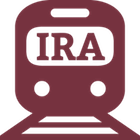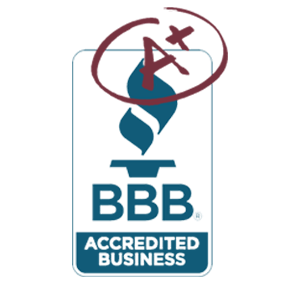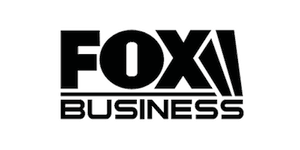The
Check Book IRA LLC
Road Map

What is a Check Book IRA?
A Check Book IRA is a combination of a Self Directed IRA owning an LLC (Limited Liability Company) with YOU being the manager of the LLC. We use an LLC because it is a business entity that is a cross between a corporation and a partnership and is the PERFECT investment vehicle for your IRA! There are no tax returns to file nor any meetings, minutes or resolutions required.
The IRA will own 100% of the LLC and this makes it a “flow through” tax entity. This means the owner, or the IRA, pays the taxes. The LLC itself will not pay any taxes, rather, it’s the owner of the LLC that is liable. But in this case, the owner is your IRA. So, if the LLC has earned the profits they pass to the IRA and there’s no tax until you take an IRA distribution.
The LLC does all the investing so you have control over all the investment decision. You must follow the guidelines in the LLC’s Operating Agreement.
–
In the 1996 case of Swanson vs. Commissioner,
the tax court gave its blessing to a new type of self-directed IRA structure —
the checkbook IRA — that is much simpler than investing through a regular custodial account.
–

August 16, 2013
“There are few restrictions on what investors can hold in these self-directed accounts. Qualifying properties include apartment and office buildings… as well as single-family houses.“
“A self-directed individual retirement account, or IRA, gives its owner the ability to invest in many things other than the usual stocks, bonds, mutual funds and CDs.“
“Frequently referred to as ‘checkbook IRAs,’ the LLC sets up a bank account with check-writing privileges for the owner, who can then directly pay for things that benefit the IRA’s assets.“

“Self-directed IRAs allow you to get the tax benefits of a tax-favored retirement account with investments that can have much greater profit potential than a typical stock or fund.“

We were one of the very first companies to offer the IRA LLC structure.
We coined the term Check Book IRA and own the Federal trademark, which is why that’s the name of our company.

What Can You Do With a Check Book IRA LLC?
What exactly can be done with this structure?
First, let’s talk about what the tax code says:

The Tax Code Prohibits
The tax code is exclusive when it comes to IRA LLCs. In other words it identifies what IRA LLCs cannot invest in; anything else is allowed. There are only two types of investments that are disallowed to an IRA LLC. Let’s take a look at what they are.
Life Insurance
26 USC 408(a)(3) prohibits an IRA LLC from investing in life insurance contracts.
Collectibles
26 USC 408(m) prohibits an IRA LLC from investing in collectibles.
That’s it; end of story. Those are the only two classes of investments that are off-limits to an IRA LLC. Anything else you can think of that does not involve life insurance or collectibles is allowed.

The Tax Code Allows
Articles & Videos
The LA Times wrote an interesting article entitled:
Checkbook IRA’s let you invest in Real Estate
Here are some articles & videos from our website about different investments you can do with a Check Book IRA LLC.

If you don't like the idea of having your retirement metals stored halfway across the country in a depository, then this video is for you. Steve Sheppherd, founder of Check Book IRA, describes how you can store your IRA LLC metals at home!
Success Stories
Below are examples of people investing in all kinds of real estate, the private equity world, precious metals, and more exotic investments such as patents and other intellectual property and offshore. Click “Read More” for each full story or you can go to this page to read them all: Client Case Studies

Setting Up a Check Book IRA: What to Expect
The easiest way to think of the setup process is to realize that two things are going on at once. Think of two train rails running side by side. Each rail is going its own speed. Same thing here, except that at the end of the process, those two rails join together.
So, what happens after you submit your application to us? Let’s look at those two rails and make sense of this. Keep in mind, what you see is a simplification, but hopefully it will help you see the forest through the trees:

A new Self-Directed IRA is opened with Our Qualified Custodian. This can be done online, and it takes only a few minutes.
Once your new IRA is open, you’ll decide what account(s) you want to move over. Whether its an IRA, a 401(k), or some other pension type plan, we’ll help you with the transfer or rollover forms to ensure the movement of funds is non-taxable.
With the proper forms, a request is made to your current custodian(s) for the non-taxable transfer. Each custodian moves at its own speed, but generally it takes them 7-14 days.
Once funds arrive in your new IRA, so long as the LLC is in place, and has been reviewed by the Custodian, the IRA should be ready to invest whatever amount of funds into the LLC that you want. We will help you with the forms to effect movement of the IRA funds into the LLC.

We’ll run a name check to ensure the LLC name you’ve chosen is available and there are no conflicts.
We draw up the paperwork to form the LLC in whichever State you’ve chosen. We also create the other legal documents of the LLC, which name you as the Manager, your IRA as the sole-member and ensure the LLC is funded in an IRS-approved manner.
The legal documentation must be signed by you, as the Manager. Upon review and approval, the Our Qualified Custodian will sign the legal documents on behalf of your IRA.
Once the LLC has been formed by the State, we will secure the EIN in such a manner that it shows the IRA as the owner of the LLC.
Now that the LLC has been created, has an EIN, and the legal documents have been signed by you and the Custodian, you can open a bank account in the name of the LLC wherever you want.
The Last Step, The Final Piece
So to review, the IRA has been opened and you’ve transferred or rolled over your current account(s) to the new IRA, and the LLC has been created and now has its own bank account at your favorite local bank.
The final step is to fund the LLC with the IRA money. We’ll help you prepare the forms to instruct the Custodian to invest the IRA funds into the LLC; you can have a wire sent directly to the LLC’s account, or the Custodian can issue a check payable to the LLC.
Once funds have been delivered to the LLC’s bank account, you are ready to begin investing.

What is Required Each Year for the Check Book IRA?
Let’s look at what needs to be done for the IRA, and also for the LLC. You’ll probably be surprised at how easy it is. There are three things you’ll be responsible for each year:
1. Paying the IRA Custodial fee to the Custodian.
2. LLC State Requirements (varies by State)
3. Yearly LLC Valuation
Let’s take a closer look and see what’s involved. At the end of each section, we’ve included a link to an article on our site that goes into greater detail.

IRA Custodial Fee
Each year, a custodial fee is due to Our Qualified Custodian. For our clients, it is a very reasonable $150. This fee is the same regardless of the value of the IRA. Remember, there are no transaction fees using the LLC.

LLC State Requirements
We can set up an LLC in any state you would want, but most of our clients choose New Mexico or Missouri as the State in which to form the LLC because of privacy and ease of maintenance. (Note: We only file Shelf LLCs for New Mexico. Click here for more info.)
If you choose New Mexico or Missouri, once a year in December, you will be billed for the Registered Agent fee of $125. You can pay with a check or money order from the LLC’s bank account. No other fees or reports are required.
If you choose a State other than New Mexico or Missouri, you may need to pay a fee to that State, and/or file an annual report, franchise tax return, or some variation of the above. Each State is different, and here is a link to the requirements for each State. You’ll notice New Mexico and Missouri is by far the most straightforward.
This annual fee must be paid from the LLC.

Yearly LLC Valuation
At the end of each year, all Custodians must prepare a statement showing the total value of each IRA they oversee and submit that statement to the IRS.
Since the LLC is a private company, Our Qualified Custodian will ask you to provide the value of the LLC each year. Generally, the request is made in the beginning of December. The valuation is very simple, but here’s a link to an article on our website that goes into greater detail.

But Wait! Aren't We Forgetting Something?
You may be thinking, “Do I need to file something with the IRS?”
That’s a good question, and thankfully it has a simple answer: No.
You may refer to this article to know why:
IRS Filing Requirements for a Check Book IRA LLC

What’s Not Allowed? What’s Off-Limits?
This section is about the types of transactions that cannot be done with a Check Book IRA. The rules are pretty simple, but they’re important.
The limits to an IRA or Check Book IRA can be divided into three groups:
1. Disqualified Investments
2. Disqualified Persons
3. Disqualified Entities or Companies
We’ll look at each of these, and give an explanation for each. As usual, links to articles on our site are provided so that you can dig as deep as you want.

Disqualified Investments
We talked about how life insurance and collectibles are the only investments prohibited to an IRA. Pretty simple.
26 USC 408(a)(3) prohibits life insurance and 26 USC 408(m) prohibits investments into collectibles.

Disqualified Persons
26 USC 4975 identifies certain persons that are considered to be disqualified to the IRA, which means that none of these persons can deal with or have anything to do with the IRA.
It’s a pretty short list, so let’s go through who the disqualified persons are:
1. IRA Owner
2. IRA Owner’s Spouse
3. IRA Owner’s Lineal Descendants
4. Spouses of the Lineal Descendants
So, let’s assume we’re talking about your IRA. The disqualified persons would be you, your wife or husband, and your lineal descendants and their spouses; so your parent, grandparents, children and their spouses, grandchildren and their spouses, etc…
All of those people are off limits to the IRA. That means that no transactions of any kind can occur between those parties and your Check Book IRA.
For more information, please read this article: Prohibited Transaction Rules, Part II: Who is a Prohibited Person?

Disqualified Entities or Companies
Entities or companies that are owned or controlled by disqualified persons can also be considered prohibited. The general rule is that if any one or more disqualified persons owns 50% or more (individually or collectively) of an entity, then that entity is considered prohibited and cannot deal with the Check Book IRA.
Stay away from these entities. For more information, please read this article: Prohibited Transaction Rules, Part III: Disqualified Entities.
Putting it All Together
All right, so now that we’re through the technical stuff, let’s talk about what this means in practice.
We have another article called Prohibited Transaction Rules, Part IV: IRA LLC Examples that puts all this together and gives a number of examples. That article should help you see how things fit together in the real world. This is an important subject to grasp, because while the limitations put on an IRA are few and far between, they are integral to ensuring your account remains in compliance.

UBIT, UDFI & The Check Book IRA
First of all, let’s clear up what UBIT stands for. UBIT stands for Unrelated Business Income Tax.
UBIT is a tax that was instituted in order to level the playing field when a tax-exempt organization engages in a business activity. Imagine a University purchasing a Subway franchise. Because the University is tax-exempt, it wouldn’t be very fair to the fellow who owns the Subway across town, to pay taxes on everything he makes, while the University pays no tax.
Congress passed legislation in 1950 out of concern that tax-exempt organizations would have an unfair advantage over for-profit companies that had to pay tax.
When It Applies
UBIT applies when an IRA engages in a trade or business. Were you to purchase a coffee shop with your Check Book IRA, it would trigger UBIT. Were the Check Book IRA to buy a farm or ranch, the operation of the farm or ranch would trigger UBIT.
How It's Calculated
When UBIT is triggered, the tax that is due, is due at the trust rate. IRAs are technically tax-exempt trusts, so any tax the IRA might owe is going to be calculated at the trust rate. It is best to consult a tax professional to ensure the tax is correctly calculated and reported.
UDFI & Financing Property
UDFI stands for Unrelated Debt-Financing Income, and it is part of UBIT. This tax applies if you secure a loan to purchase property in an IRA. A lot of people don’t know you can finance property in an IRA, but it has always been allowed.
UDFI is triggered when an IRA, or in this case a Check Book IRA, makes income on a property that has been financed. Don’t shrink away too quickly; UDFI isn’t always a bad thing. The good news is that the tax only applies to a portion of the income produced by the property, and you get certain exemptions and write-offs as well, to reduce that number even further.
Tips and Tricks
There are generally ways to structure around UBIT & UDFI tax issues. The trick lies in arranging the transaction in such a way that the income that will come to the Check Book IRA is in a non-taxable form, such as rental income, royalty income, dividends, asset appreciation, interest income, etc.
We’re always happy to talk with clients about their investment ideas. If you have something in mind, give us a call. If you might be subject to UBIT, we’ll let you know and see what your options are.

Why You Should Choose Us
Our hope is that through the above sections, you’ve seen how much we offer as a company. We have the most informative IRA LLC website on the internet, and we go to great lengths to ensure our potential clients are informed enough to make a decision regarding the Check Book IRA.
We don’t have salesmen, and we don’t try to talk anyone into anything. All we can do is put this information in front of you and help you understand the structure, so that you can make your own decision as to whether or not it is for you.
So, if you are still considering the Check Book IRA, here are a few reasons you should use us:

Experience
We were one of the first companies to offer the IRA LLC structure, and we even came up with the name Check Book IRA and own the Federal trademark, which is why that’s the name of our company. When we tell you something, you can rest easy knowing we’re not going off half-cocked, or telling you something that could get you in trouble.
We’re very conservative in what we tell clients, and if there’s even the hint of an issue that could result because of something the they want to do, we’re the first to bring it up. We’re then more than happy to help them figure out how to stay on the right side of the line.

Expertise
Setting up a Check Book IRA consists of a lot of moving parts, but you don’t have to worry because we’ll do the heavy lifting for you. We handle everything with the LLC, and we help as much as we can on the IRA side as well.
Have questions? Call us. We’ll take care of the details, so you can rest easy knowing everything is done correctly.

Unparalleled Support
We’ve got your back. After you’re set up, we’ll always be here for you. Need help structuring an investment? Have tax related questions? Want to know if something is permissible or not? Call or email us. We’ll help you figure out and make sure you’re on the right side of the rules. We’ll make our CPA and attorney available to you as well, should you need them for a particularly complicated tax or legal question.

Perfect A+ BBB Rating
We’ve maintained and will continue to maintain a perfect rating with the Better Business Bureau. Our clients have never had reason to complain, and we’re as happy about that as they are.

Satisfied Clients in 50 States & 34 Countries
Our clients are all over the world, doing all sorts of interesting things. We’ve served them proudly since 2004 and have enjoyed getting to know them, helping them get the most out of the structure, and seeing them succeed in protecting and growing their retirement.






